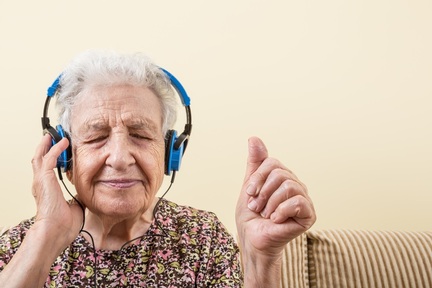Health minister urges more 'social prescribing' and less 'dishing out drugs'
Matt Hancock, minister for health and social care, has spoken about how social prescribing should be seen as a viable alternative to “dishing out drugs”.

The minister reserved special mention for the effect music can have on those with dementia, saying, “Music can help people with dementia. It [social prescribing] can reduce the need for medication”.
Mr Hancock suggested the use of music, such as concerts and personal playlists, to help people with dementia “reduce the need for restraints and help dementia patients and their families cope better with symptoms.”
The comments were made at the national annual conference on social prescription, organised by the healthcare charity, the King’s Fund.
During his speech, the minister criticised the current prescribing culture of “popping pills” and vowed to create a National Academy for Social Prescribing.
This, he argued, would “build the research base and explain the benefits of social prescribing across the board from the arts to physical exercise to nutritional advice and community classes”.
The former culture minister added: “We’ve been fostering a culture that’s popping pills and Prozac. When what we should be doing is more prevention and perspiration.
“Social prescribing can help us combat over-medicalising people. Of dishing out drugs when it isn’t what’s best for the patient. And it won’t solve their problem.
“It’s about what works for you. How you can participate in the arts to improve your health. It’s about moving from patient-centred care to person-centred care. Stopping people from becoming patients in the first place.”
Prime Minister, Theresa May, recently announced all GPs in England and Wales will be able to refer patients experiencing loneliness to community activities and voluntary services by 2023, as part of the first-ever loneliness strategy.
Sally Copley, director of policy, campaigns and partnerships at Alzheimer’s Society, welcomed the move but said the arts alone wouldn’t work as "some kind of silver bullet for people with dementia.”
But the dementia campaigner did recognise the arts have an important role in helping those diagnosed with dementia. She said: “There is no denying that social interaction, music and the arts have a key role to play in helping the 850,000 people with dementia across the UK to feel empowered and able to continue to do the things they enjoy.
"We know from activities like Alzheimer’s Society’s Singing for the Brain groups just how valuable the arts are in helping to combat the isolation and loneliness felt by many people with dementia."
Latest News
 29-Jul-24
Dementia Bus gives carehome.co.uk staff insight into life with dementia
29-Jul-24
Dementia Bus gives carehome.co.uk staff insight into life with dementia
 01-Mar-24
Find out the top care homes in 2024
01-Mar-24
Find out the top care homes in 2024
 21-Mar-23
UK's top care homes in 2023 revealed
21-Mar-23
UK's top care homes in 2023 revealed
 03-Jan-23
carehome.co.uk launches free care helpline
03-Jan-23
carehome.co.uk launches free care helpline
 13-Dec-22
5 mins with Emily Whitehurst, chief operating officer for Constantia Healthcare
13-Dec-22
5 mins with Emily Whitehurst, chief operating officer for Constantia Healthcare